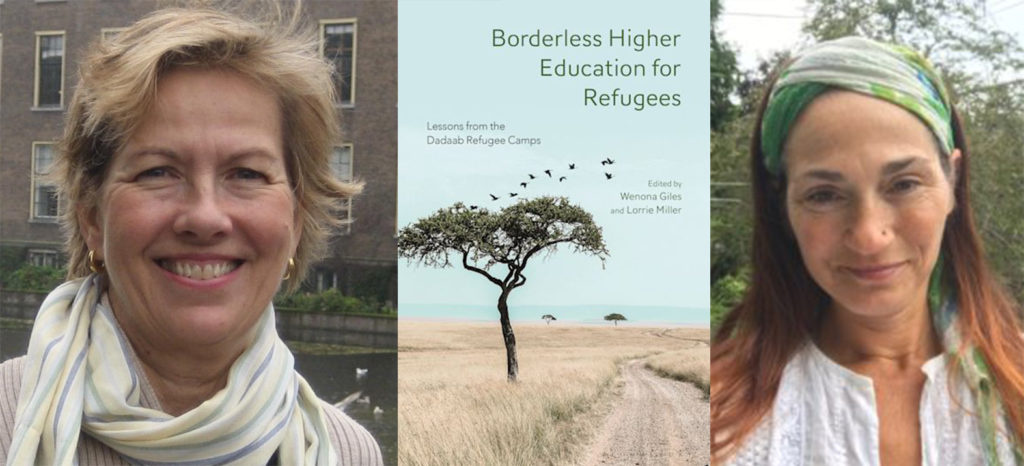Building on the success of its inaugural speaker series, York University’s Faculty of Education, Centre for Refugee Studies and Borderless Higher Education for Refugees (BHER) Project will co-sponsor a second-annual virtual colloquium with Windle International Kenya.
The colloquium will once again feature speakers with diverse experience and expertise related to schooling and key contemporary global challenges. Speakers will either: analyze the implications of challenges like climate change, anti-Black racism, and continuing border imperialism for refugee and host communities; highlight the unique knowledge that refugee communities bring to education in service of a better world; or offer new lenses through which those involved in refugee education can use to make sense of the moment.
The BHER Speaker Series remains the first of its kind hosted at the Faculty of Education, equally featuring experts from York University and from institutions that are comprised of or working with refugees. It includes speakers from both Canada and East Africa, either in conversation or on an alternating basis. This will foster a reciprocal and engaged model of learning.
To accommodate this transnational conversation, lectures will be held at a time convenient for participants on Eastern Standard Time (EST) and East Africa Time (GMT+3).

The first event of the series is a book launch for Borderless Higher Education for Refugees: Lessons from the Dadaab Refugee Camps (Bloomsbury Publishing, September 2021), co-edited by York University Professor Emerita Wenona Giles and Lorrie Miller, taking place on Oct. 6 from 10 a.m. to noon (EST) on Zoom.
Higher education is increasingly recognized as crucial for the livelihoods of refugees and displaced populations caught in emergencies and protracted crises, to enable them to engage in contemporary, knowledge-based, global society. This book tells the story of the Borderless Higher Education for Refugees (BHER) Project, which delivers tuition-free university degree programs into two of the largest protracted refugee camps in the world, Dadaab and Kakuma in Kenya. Combining a human rights approach, critical humanitarianism, and a concern with gender relations and intersecting inequalities, the book proposes that higher education can provide refugees with the possibility of staying put or returning home with dignity. Written by academics based in Canada, Kenya, Somalia and the U.S. as well as non-governmental organization workers and students from the camps, the book demonstrates how north-south and south-south collaborations are possible and indeed productive.
Giles is professor emerita and senior scholar in York University’s Department of Anthropology and a resident research associate of York’s Centre for Refugee Studies, where she has taught and published in the areas of gender, forced migration, globalization, migration, education, nationalism and war. Her recent co-authored book is Refugees in Extended Exile: Living on the Edge (2017) and recent co-edited book is A Better Future: The Role of Higher Education for Displaced and Marginalised People (2020). Giles co-founded and helped co-ordinate the International Women in Conflict Zones Research Network (1993-2004) and co-led the BHER Project (2013-19) in Kenya’s Dadaab refugee camps.
Miller holds a PhD from the University of British Columbia (UBC) in art education. While working as a program coordinator in teacher education at UBC, she coordinated and directed the operational aspects of a Secondary Teachers’ Diploma program for UBC as part of the BHER Project (located in Dadaab) with other national and international university partners. Questions surrounding pedagogies of care in education drive her academic curiosity: what should education look like in fragile contexts during challenging times? She is now the associate director at the Institute for Veterans Education and Transition.
Attend the virtual book launch at yorku.zoom.us/j/97185218104?pwd=UWFPVTR5WHdic2oxMHYvQ0NYSUpaQT09m.
This event is a part of the BHER Speaker Series 2021-22: Reciprocal Learning Beyond Crisis. Upcoming events in the series include “BHER at the MIC: A creative showcase by Dadaab youth” on Nov. 3 and “Science Education in Climate Crisis” on Dec. 1. For more information about the the speaker series, visit yorku.ca/edu/reciprocal-learning-beyond-crisis.


